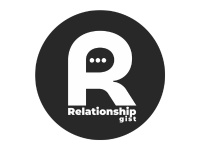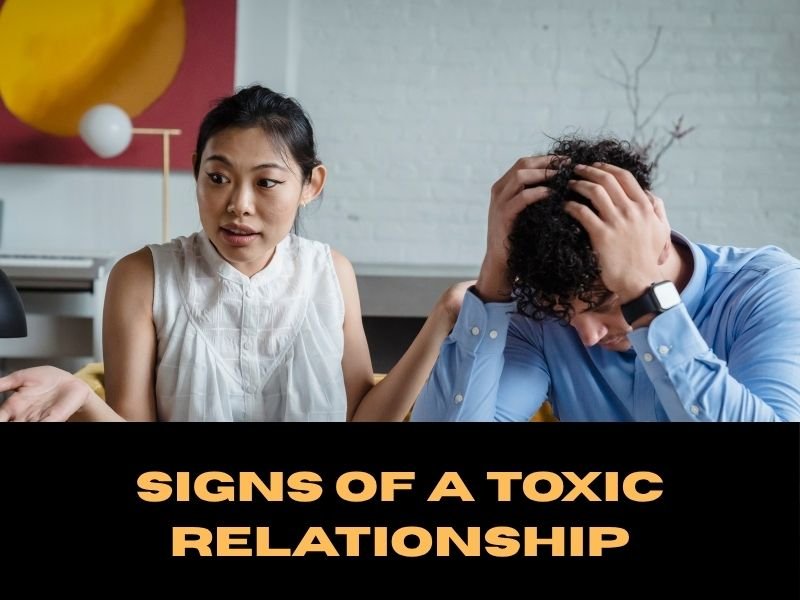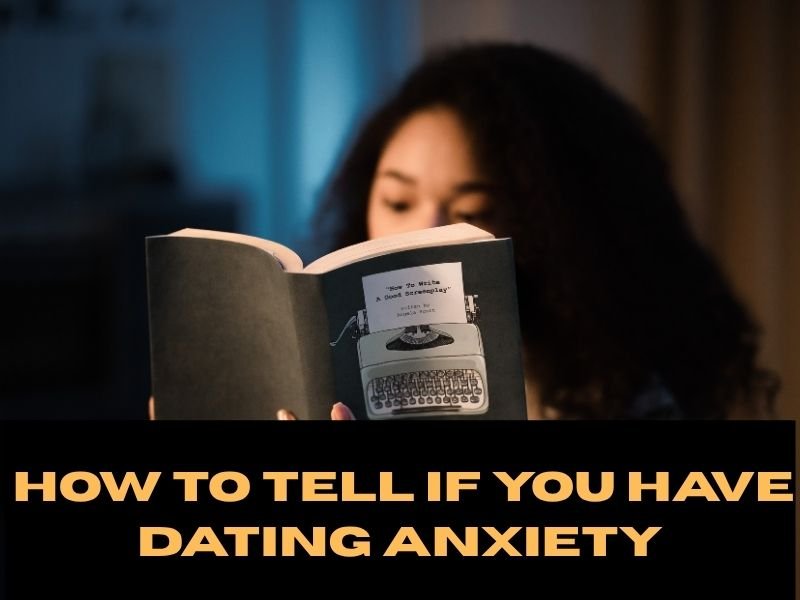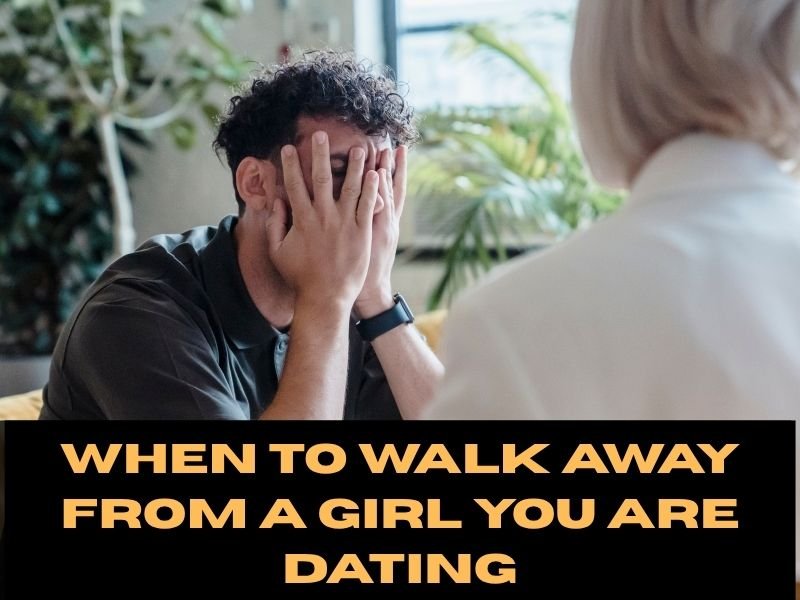A toxic relationship is characterized by a recurring pattern of actions, words, and attitudes that drain your energy, undermine your self-worth, and keep you caught in a never-ending cycle of emotional stress. In this article, we will discuss signs of a toxic relationship. It is not just about the odd argument or bad day. The risk is that toxic relationships rarely begin that way; instead, they frequently start charming and exciting before gradually degenerating into control, manipulation, or emotional neglect.
If you notice these numerous or few signs early, you could avoid months or even years of pain. If you know the red flags, you can protect your emotional health and make smart decisions about your love life, whether you’re dating, married, or in a situationship.
What Is a Toxic Relationship? (And Why It’s Hard to Spot at First)
A relationship is toxic if unhealthy behaviors become the norm in a romantic, friendship, or family relationship. These patterns can include emotional abuse, manipulation, too much control, disrespect, or neglect, which are often hidden behind the words “love” or “just caring.” These actions will take away your confidence, independence, and peace of mind gradually.
One of the main reasons it is hard to see toxic relationships is that the bad changes happen slowly over time. You might think of red flags as misunderstandings or mood swings at first. But as time goes on, the toxic things in your life become a constant background noise, making you feel confused, tired, and unsure of your worth. The first step to getting free is to see this slow creep.
The Psychology Behind Toxic Love: Why We Stay Even When It Hurts
People who are not in a toxic relationship might think, “Why don’t you just leave?” But psychology shows that these kinds of relationships can make people emotionally dependent. When your partner switches between being loving and ignoring you, your brain goes through something called intermittent reinforcement. This random reward system makes dopamine flow, which makes you hold on to the “good moments” even though the bad ones are more common.
Also, a lot of people in toxic relationships have problems with low self-esteem, fear of being alone, or unresolved childhood attachment wounds. Even though it hurts, these things can make unhealthy love seem “normal” or even comforting. It is important to understand these psychological hooks because getting free is not just about leaving; it’s also about changing the emotional patterns that kept you there in the first place.
Main Types of Toxic Relationships You Might Encounter
The Over-Dependent Partner
A partner who is too dependent on you needs you to help them make decisions, feel good about themselves, and even keep their emotions in check. It’s good to support each other in a relationship, but being too dependent on someone else can wear you down and stop them from becoming stronger. You might start to feel like their parent instead of their partner, and your own needs might not be as important.
This kind of dynamic can also make people feel guilty and obligated. You might stay not because you are happy, but because you are afraid of what will happen to them if you leave. It’s important to be kind, but not at the expense of your freedom and mental health.
The partner who is always angry or short-tempered
This partner is always angry. You get on edge because little problems turn into big fights, and you cannot wait for the next explosion. It is normal for people to get angry from time to time, but being with someone who is always angry makes it hard to relax and be yourself around them.
I once had a client named Mia who said that her mornings with her boyfriend were like “walking through a minefield.” He would slam cabinets if the coffee maker broke. If traffic made him late, he would yell and curse at her for not telling him to leave earlier. Mia stopped talking about her thoughts, stopped making plans, and even tiptoed around the house in her own home for months. She did this because she never knew which version of him she would see.
The partner who is possessive and controlling
Possessive people may say they love you deeply, but what they want is to control you. If your partner is always checking your phone, asking where you’ve been, or telling you who you can and can’t see, they are crossing the line. This kind of behavior comes from feeling insecure, not loving someone, and it slowly takes away your freedom.
For example, look at Daniel’s story. At first, Sophie’s constant texting made him feel good about himself because it seemed like she cared. But the tone changed quickly. She would say he was ignoring her if he didn’t answer right away. She started showing up at his job without warning and “forgetting” to give him back his spare house key. What started as attention slowly turned into spying, making Daniel feel more like a prisoner than a partner.
The Manipulative Gaslighter
Gaslighting is one of the worst toxic behaviors because it makes you doubt what you know to be true. A partner who gaslights you changes the facts, denies what they said or did, and makes you feel like you’re overreacting or making things up. Over time, this makes you less confident in yourself and makes you need them to feel good about yourself.
Jade’s experience with her boyfriend Liam was a perfect example. When she asked him about texting his ex late at night, he laughed and said, “You are so paranoid; it was just a work contact.” He said she was “digging for drama” and “too sensitive” when she found proof that he was wrong. After months of these conversations, Jade started to doubt her memory, her feelings, and even her sanity, all while Liam’s behavior went unpunished.
The Emotionally Unavailable Partner
A partner who is not emotionally available is not always mean or violent; they just are not there when you need them to be. They might not want to talk about feelings, switch the subject when you do, or stay away from you when you are feeling weak. Even though the relationship seems calm on the outside, it makes you feel lonely even when you are together.
Think about how Rachel and Mark get along. On weekends, they had fun, went out to eat, and even traveled together. But every time Rachel brought up her work problems or hinted that she wanted to talk about the future, Mark would stop talking. He would either make a joke, change the subject, or say he was “too tired” to talk about anything serious. Over time, Rachel realized she wasn’t just missing passion; she was missing the emotional intimacy that makes a relationship truly fulfilling.
20 Warning Signs of a Toxic Relationship
Emotional Red Flags:
You Always Feel Tired. Instead of feeling better, every interaction leaves you emotionally drained.
Their Mood Affects Your Happiness. Your whole day feels ruined if they are upset.
They make you doubt your worth by criticizing you, comparing you to others, or making small insults.
They often make you feel bad for saying what you need or setting limits.
You Walk on Thin Ice. You always make sure not to “set them off.”
Signs of bad behavior
Jealousy disguised as love. They tell you who you can see and where you can go, saying it is “for your good.”
Always in a fight, little arguments turn into big ones.
Keeping Score: They use past mistakes to win arguments.
Isolation from Friends or Family. They subtly (or openly) try to keep you from seeing your friends and family.
Behavior that is not reliable or consistent. You never know which version of them you will get.
Signs of Poor Communication
Conversations Turn Into Fights. Even casual talks can turn into fights.
They don’t care about your feelings. They call you “too sensitive” or “overreacting.”
Sarcasm or mockery that hurts, jokes at your expense, becomes the norm.
Avoiding the future talk, they won’t talk about plans or commitment.
Manipulative language changes what you say to make you feel bad or confused.
Red Flags for Health and Safety
Threats or intimidation, using fear to get you to do what they want.
Coercive intimate behavior is when someone makes you have intimacy with them even though you don’t want to.
Controlling finances means limiting your access to money or other resources.
Damaging property, breaking things during fights.
Physical aggression is any kind of hitting, shoving, or unwanted touching.
How Toxic Relationships Affect Your Mental Health
Bad relationships can hurt your emotional and physical health as well as your love life. Your body’s fight-or-flight response kicks in when you are under a lot of stress and tension. This can cause long-term anxiety, irritability, and even physical symptoms like headaches or fatigue. This heightened state of alert becomes your “normal” over time, leaving you drained without realizing how much the relationship is taking from you.
Lisa, a college student, thought that the stress of school was making her not sleep and giving her stomach aches all the time. She didn’t notice her symptoms getting better until she spent a week away from her boyfriend, who was great at making her feel guilty and giving her the silent treatment. Without the daily dose of emotional stress, her appetite got better, her headaches went away, and finally, she felt clear-headed enough to see the relationship for what it was: a toxic one.
Why People Struggle to Leave a Toxic Partner
It is not always easy to leave a bad relationship; sometimes you have to “just walk away.” People can stay stuck for a lot longer than they think because of emotional ties, money problems, and fear of the unknown. A lot of bad partners use love-bombing, which is when they suddenly show you a lot of love after ignoring you for a while, to get you back just when you’re ready to leave. This emotional rollercoaster makes you think that things might finally change.
Consider Aaron’s tale. During arguments, his girlfriend would call him derogatory names, humiliate him in front of friends, and even threaten to end their relationship. But as soon as he started to distance himself, she would buy him presents, send him sincere messages, and discuss their future together. Aaron’s hope for improvement always triumphed over his painful memories, until the cycle was repeated. Even though they know deep down that the relationship is unhealthy, many people are emotionally hooked by this push-and-pull.
Can a Toxic Relationship Be Fixed?
The extent of the harm and both parties’ readiness to adapt, and the situation’s safety, all influence the response. Poor communication, stress, or unresolved conflicts are some of the reasons why some relationships turn toxic; these sorts of problems can be resolved with dedication and expert assistance. In these situations, mutual accountability, boundary-setting, and therapy can all aid in reestablishing respect and trust.
However, remaining in this kind of a relationship frequently does more harm than good if the toxicity includes abuse, manipulation, or persistent disrespect. For there to be genuine change, both partners must acknowledge their contributions to the issue and make an effort to adopt healthier habits. Promises of change are often short-lived without that collaborative effort, and the cycle of harm is likely to persist.
Conclusion
More than just identifying unhealthy behaviors, recognizing the warning signs of a toxic relationship is about safeguarding your emotional well-being and having enough self-worth to demand better. Over time, bad and toxic behaviors like criticism, control, manipulation, or neglect can make you less confident and happy.
Dr. John Gottman, a well-known relationship researcher, said, “In strong relationships, partners make at least five positive statements for every negative one during conflict.” This balance helps to build trust, safety, and connection, which is the opposite of a toxic dynamic, where bad interactions happen much more often than good ones. You should try to find or make relationships that help you grow instead of drain you, where respect and kindness are non-negotiable. Keep in mind that love should make you stronger, not weaker.







